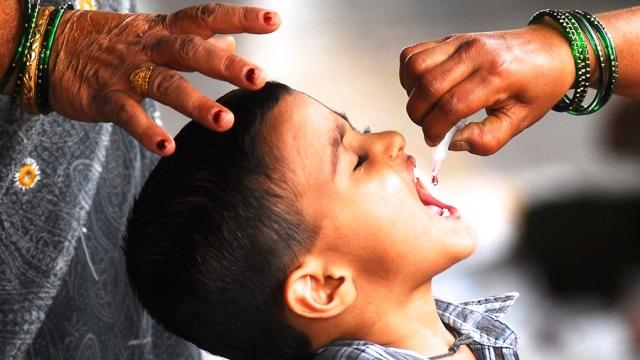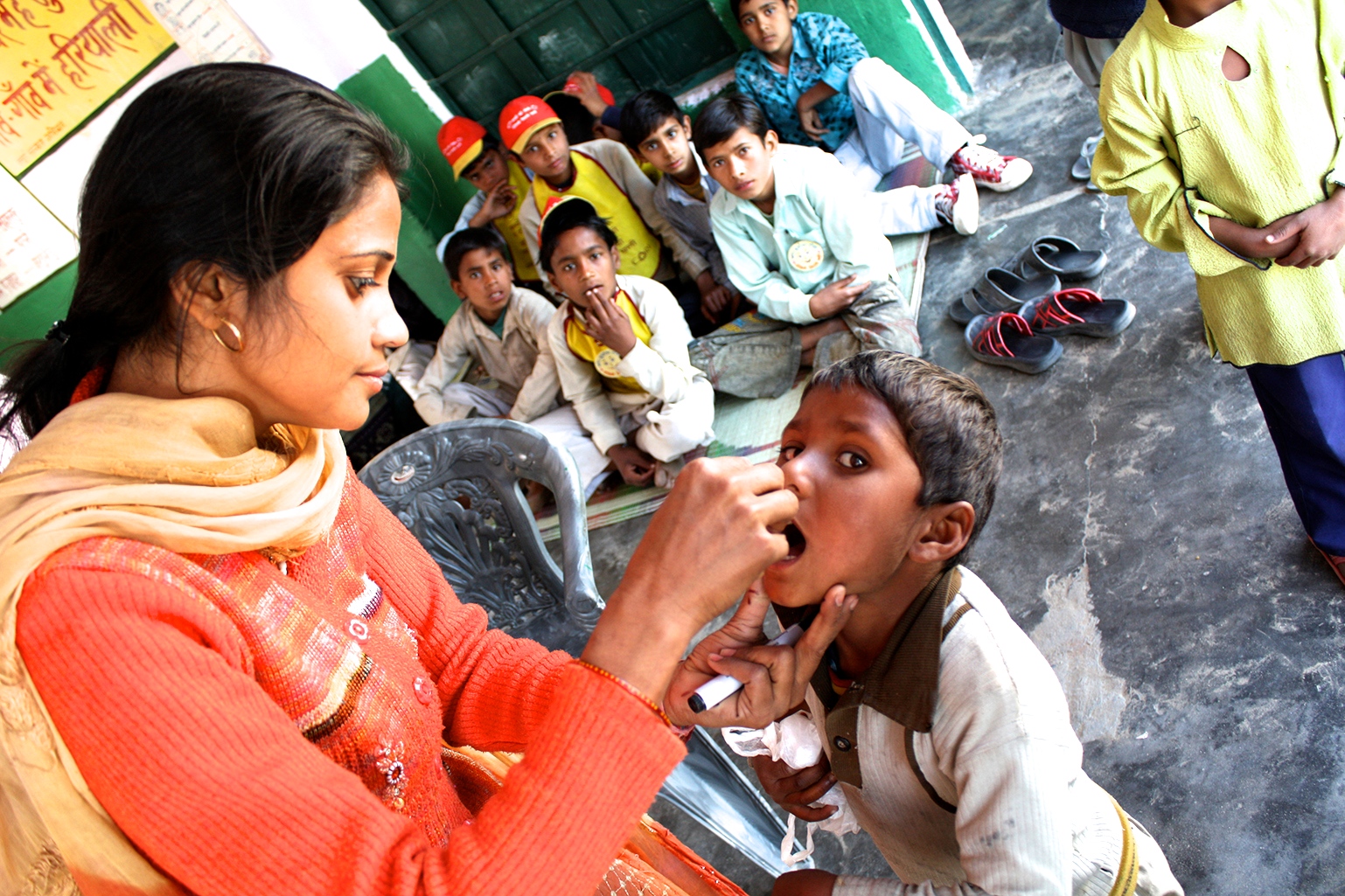
India has officially won the war against the crippling disease, polio. On March 28, the World Health Organization (WHO) declared India polio-free after the country reported no cases of the disease in the last three years. To many, it marks the finest example of what strong political will combined with a citizenry determined to protect its children can achieve.
In each National Pulse Polio Immunization round organized by the Indian government, nearly 2.4 million vaccinators working under 150,000 supervisors visited over 200 million households. The results: they ensured that nearly 172 million children under age five are now immunized with the Oral Polio Vaccine.
While strong government and private partnerships played a huge role, ultimately the victory belongs to the vast network of field workers, community health specialists and volunteers who worked tirelessly to see that no part of the country was inaccessible – and no child too far away to vaccinate.
“The ordinary nurse worker and the volunteers recruited to ensure that children were given the drops did the real work,” says Dr. Ramnath Rao, whose clinic in Kolkata served as one of the polio vaccine centers. Similar centers were set up in railway stations, malls, markets and the busiest areas of cities, towns and villages across the country to aid the effort.
Dr. R. Balasubramaniam, a Frank Rhodes Professor at Cornell University, said of the citizen volunteers: “Selected from the communities that needed information about the vaccine the most, they ensured that the most vulnerable populations were reached.”
Targeting Vulnerable Populations
As the Global Polio Eradication Initiative (GPEI) explains, “Polio, a viral disease that can cause paralysis and sometimes death, is on the cusp of becoming only the second disease to be eradicated from the world. Polio often spreads among dense populations amid poor sanitation, and occurs most frequently in the summer. Children under age five are the most vulnerable.”
Savitri Devi, from Kolkatta, signed up as a volunteer in 1980. Today she still plays an active part in the polio drives. “The whole idea that children could be saved with just two drops is what made me join,” she says. “I needed a job and this was more than just money.”
She along with her team of volunteers in the camp would start administering the drops from 6am often until late at night. “Also it was our work to ensure that children from the surrounding areas were brought to us,” she says. “Sometimes people would refuse to vaccinate their children believing that it would cause them great harm.”
Tapping into India’s love for cricket and cinema proved useful. Actors and cricketing stars exhorted their fans to immunize children in a series of advertisements. Their fan clubs were also given the means to set up pulse polo camps across the country.
Augustine Veliath, a former communications specialist with UNICEF, said that “actors with their huge fan following came with us when we would go to talk to people. Some like Farooq Sheik would walk into homes and convince people about the importance of immunization.”
One of those people, Manu Bhai from Mumbai, attested: “I grew up watching his films. When he told me about the vaccine, I couldn’t refuse.”
Hand in Hand
International cooperation was also crucial in seeing through India's historic victory over the disease. Rotary clubs, UNICEF and WHO, along with the Global Polio Eradication Initiative and others, worked hand in hand with the Indian government to ensure its successful eradication.
Ashok Mahajan, a member of the Rotary Club of Mulund, Maharashtra, and a GPEI partner, said religion also played a role. “The Muslim religious leaders (Ulemas) came to our rescue. In the Bhiwand area in Mumbai, they set up posters and information centers right after the Friday prayers so that everyone who came to pray would get the message.”
However, while India might have won this round against polio, a lot more still needs to be done elsewhere.
In 2013, the GPEI launched the Eradication and Endgame Strategic Plan, a comprehensive roadmap to end polio globally by 2018. More than 450 scientists voiced support for the GPEI plan, and more than $4 billion was pledged toward its implementation from new and existing donors.
Through the Strategic Plan and country-level National Emergency Action Plans that have already been launched, the three countries that have yet to end endemic polio transmission – Afghanistan, Pakistan and Nigeria – have nonetheless restricted the virus to fewer areas than it existed before.
Impending Danger
At the same time, outbreaks in previously polio-free regions reinforce the urgency of ending its transmission. Most endemic cases of polio cases are isolated to northwestern Pakistan, with some cases in northern Nigeria. And there are fears that Pakistan, sharing borders with India, might bring the virus back. For this reason, Deepak Kapur, chairman of Rotary International’s India National PolioPlus Committee, says that perhaps India’s optimism is early yet.
“India has not reported a case of polio over the last three years, but that might not mean that India is polio free forever,” Kapur said. “We have a lot to learn from China which had been polio-free for eight years before the virus entered from Pakistan. Pakistan and Afghanistan still aren’t polio-free and have re-infected countries like Syria, Angola and Somalia."
Currently, investments in high-quality vaccination campaigns are driving significant polio reductions in Afghanistan and Nigeria. But Afghanistan and Pakistan remain of immediate concern for India. In both countries where the Taliban maintains control, polio workers face a grave threat to life – in the latest incident last month, 11 people were killed when two vans carrying a polio vaccination team were hit by a roadside bomb in Pakistan's northern Khyber Agency.
Such violence keeps anti-polio campaigns in those countries small and less effective than they could be. But India’s win is an example that place like Pakistan and Afghanistan can learn from. Because ultimately it’s about protecting children and ensuring healthier futures.
Follow the author Paromita Pain on the Commons or on twitter at @ParoP
3 WAYS TO SHOW YOUR SUPPORT
- Log in to post comments













